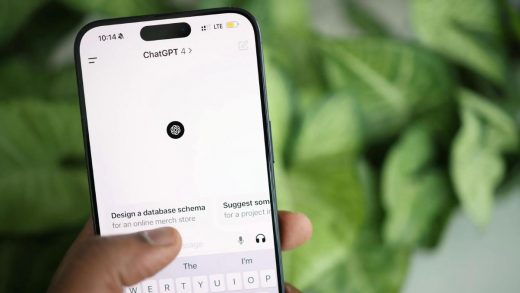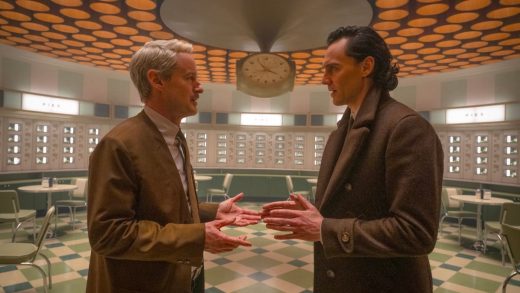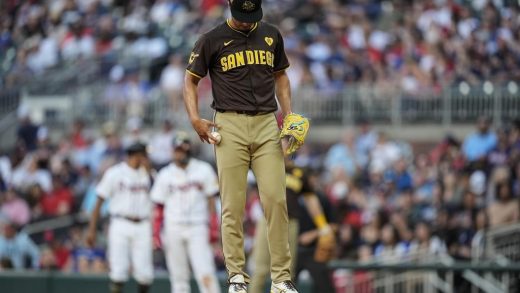:format(webp)/https://www.thestar.com/content/dam/thestar/entertainment/music/2023/03/06/tragically-hip-confirm-conservatives-had-permission-to-use-their-music-at-pierre-poilievre-event/the_tragically_hip_bus_shot_1_photo_credit_gordon_hawkins.jpg)
Over the weekend, The Tragically Hip guitarist Paul Langlois blasted the Conservative Party of Canada following unconfirmed reports that the band’s music was used without permission at a campaign event featuring Pierre Poilievre.
However, the band stated Monday that the Hamilton venue that hosted the event had a license to play a broad range of Canadian music, including songs by The Tragically Hip.
“It is (and has always been) our expectation that brands, political parties, or public figures wishing to use our music for a campaign first seek our approval,” the statement said.
“When we began to see posts and tweets from the event this weekend, the specifics were unclear. It has now been confirmed that Saturday’s event took place in a venue licensed by SOCAN, which means the venue pays a fee to ensure artists and musicians are compensated appropriately when music is played on site. As such, specific permissions were not required in this case.”
The Society of Composers, Authors and Music Publishers of Canada (SOCAN), is a Canadian performance rights organization that represents the performing rights of more than 135,000 songwriters, composers and music publishers.
“We did not have the full details in our earlier posts — and now consider this matter resolved,” the statement added.
The controversy bubbled up over the weekend, when users on social media pointed out that the Hip’s music was being played in the background of a “meet and greet” with Conservative Party Leader Pierre Poilievre, hosted at the Grand Olympia Hospitality and Convention Centre in Hamilton on Saturday. One video from the event circulated in which the Hip’s 1992 song “Fifty-Mission Cap” is playing in the background.
Langlois responded to a fan on Twitter, saying the band was not aware that they had given the Conservatives permission to use the song, calling it “highly offensive.”
On Sunday, he released a further statement.
“We have always been highly offended by anybody who doesn’t ask for our permission to use our music for a brand, a political party, or a public figure of any sort. It’s just common courtesy to ask, and it applies to anyone and everyone.”
Langlois’s statements caused a bit of a furor on Twitter.
“I can respect any artist who doesn’t want their art exploited, especially ideologically,” wrote one user.
Plenty of others criticized Langlois’s position.
How can an election campaign get a performer’s permission to use a song?
According to Music Canada, which represents Sony Music Entertainment Canada, Universal Music Canada and Warner Music Canada, there are several things an election campaign should consider before using a popular song at a rally or political event.
“The public use of recorded music in Canada requires obtaining necessary licenses and permissions,” the organization’s website states. “Users must either ensure that required licenses have been obtained for playing music at a live event or including it in a broadcast or internet spot and that required consents are obtained from the appropriate rights holders, or satisfy themselves that no license is required in the circumstances.”
Playing recorded music in public requires two licenses, the website states: one covering the musical work and one covering the artist’s recording of the work. “Both are typically obtained by the venue and billed to the campaign.”
In the case at hand, the Grand Olympia Convention Centre in Hamilton had a SOCAN license, which means the venue, not the Conservative Party, needed to seek explicit permission to play music by artists who are part of the organization.
A similar controversy occured in 2014, when Canadian rock legend Randy Bachman called out Prime Minister Stephen Harper for using the Bachman-Turner Overdrive classic “Taking Care of Business” at a campaign rally.
However, Bachman backpedalled after a Conservative Party spokesperson confirmed that they had paid the appropriate licensing fees to SOCAN.
A long history of musicians objecting to politicians using their songs
There’s a long history of artists calling out politicians for using their music at campaign events or rallies without permission.
The most famous case occured in the mid-1980s, when Bruce Springsteen objected to U.S. President Ronald Reagan request to use “Born in the U.S.A.” during his re-election campaign.
Springsteen told Rolling Stone, “I think people have a need to feel good about the country they live in. But what’s happening, I think, is that that need – which is a good thing – is getting manipulated and exploited.”
In 2008, U.S. Senator John McCain unsuccessfully attempted to use Abba’s “Take A Chance On Me” during his presidential campaign. “We played it a couple times and it’s my understanding [Abba] went berserk,” McCain said.
In 2020, Neil Young sued Donald Trump’s reelection campaign for copyright infringement for the former President’s repeated use of the songs “Rockin’ in the Free World” and “Devil’s Sidewalk.” In the lawsuit, Young sought to distance himself from “a divisive, un-American campaign of ignorance and hate.”
Last year, rapper Dr Dre sent a cease-and-desist letter to controversial U.S. politician Marjorie Taylor Greene, after she used one of his songs in a promotional video. “I don’t license my music to politicians, especially someone as divisive and hateful as this one,” Dr. Dre said in a statement.
JOIN THE CONVERSATION
does not endorse these opinions.


